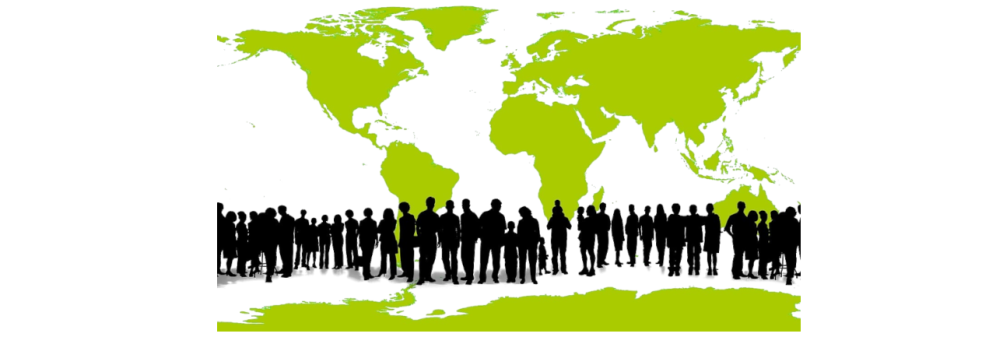Pour voir les références d’un(e) auteur(e), cliquez sur son nom. Pour revenir à la page, utilisez le bouton refresh ci-dessous.
Résultats pour:
Who
2024
Le sepsis est une affection potentiellement mortelle qui survient lorsque le système immunitaire réagit de façon extrême à une infection, entraînant une dysfonction d’organe (4). Cette réaction immunitaire provoque des lésions tissulaires et organiques et peut entraîner un état de choc, une défaillance multiviscérale et parfois le décès, surtout si elle n’est pas détectée tôt et traitée rapidement. Le sepsis peut toucher n’importe qui, mais les personnes âgées, les jeunes, les femmes enceintes ou les personnes souffrant d’autres problèmes de santé sont exposées à un risque plus élevé.
Marcus Decker dared to protest the climate crisis and was punished. Now he could be deported, says Guardian columnist George Monbiot
2023
One Health is an integrated, unifying approach that aims to sustainably balance and optimize the health of people, animals and ecosystems.It recognizes that the health of humans, domestic and wild animals, plants, and the wider environment (including ecosystems) are closely linked and interdependent.
James Hansen, who testified to Congress on global heating in 1988, says world is approaching a ‘new climate frontier’
De Wereldgezondheidsorganisatie (WHO) heeft nieuwe richtlijnen uitgevaardigd om kinderen beter te beschermen tegen “agressieve” marketing voor ongezonde voeding.
Cell-based food production, which is the field of growing animal agricultural products directly from cell cultures, has been explored as an alleged sustainable alternative to the conventional livestock agricultural system. As commercial cell-based food production continues to expand, the urgency increases to address one of the most important questions of consumers, the question of food safety. Thus, the Food and Agriculture Organization of the United Nations (FAO), in collaboration with the World Health Organization (WHO), has developed the present document to engage with respective Members and relevant stakeholders by proactively sharing the current knowledge to identify concrete ways to inform consumers and all other stakeholders about the food safety considerations for cell-based food products. This document includes a literature synthesis of relevant terminology issues, principles of cell-based food production processes and the global landscape of regulatory frameworks for cell-based food production.
Amper 6 landen ter wereld halen de luchtkwaliteitsnormen van de Wereldgezondheidsorganisatie (WHO). In slechts 3 procent van de steden blijft de luchtvervuiling binnen de perken. Dat is de conclusie van het jaarlijkse World Air Report van het Zwitserse bedrijf IQAIr.
2022
A climate protester who blocked a lane of traffic on Sydney Harbour Bridge has been sentenced to 15 months in prison with a non-parole period of eight months, with human rights advocates labelling the punishment “disproportionate”.
Pennsylvania children living near fracking sites at birth are two to three times more likely to be diagnosed with leukemia during early childhood than those who did not live near such facilities, a new study has found.
It may sound like Marxism, but the proposal aimed at taming prices and cutting Putin’s funds came from the G7
De klimaatverandering heeft een impact op het psychische welzijn, zegt de Wereldgezondheidsorganisatie, en meer landen moeten daarmee rekening houden in hun nationale klimaatplannen.
De klimaatverandering heeft een impact op het psychische welzijn, zegt de Wereldgezondheidsorganisatie, en meer landen moeten daarmee rekening houden in hun nationale klimaatplannen.
Have you ever sat down in the middle of the road? I did it the other day, in Regent Street in central London, as part of a protest organised by Extinction Rebellion. There were 10 000 of us sitting in the road, from Oxford Street to Piccadilly Circus.
La bataille pour refroidir la planète semble paradoxalement provoquer une surchauffe de l'économie. C'est l'essence même de la « greenflation » : le coup de fouet supplémentaire donné aux prix lorsque l'inflation classique par les coûts - que nous connaissons maintenant que le monde se remet de la pandémie grâce à des mesures de relance budgétaire/monétaire massives et à un important excédent d'épargne - est dopée par les coûts de la transition écologique.
Geen enkel land haalt de luchtkwaliteitsnormen van de Wereldgezondheidsorganisatie, en slechts in 3 procent van de steden blijft de luchtvervuiling binnen de perken. Dat is de conclusie van het jaarlijkse World Air Quality Report van het Zwitserse bedrijf IQAIr.
Geen enkel land haalt de luchtkwaliteitsnormen van de Wereldgezondheidsorganisatie, en slechts in 3 procent van de steden blijft de luchtvervuiling binnen de perken. Dat is de conclusie van het jaarlijkse World Air Report van het IQAIr.
Russia’s growing isolation has strengthened the ‘siloviki’ who surround the president
2021
Herrington, a Dutch sustainability researcher and adviser to the Club of Rome, has made headlines in recent days after she authored a report that appeared to show a controversial 1970s study predicting the collapse of civilization was – apparently – right on time. Coming amid a cascade of alarming environmental events, Herrington’s work predicted the collapse could come around 2040 if current trends held.
Nearly 700 million people worldwide live in low coastal zones vulnerable to sea-level rise and coastal storms. That number could reach a billion by 2050. [..] In response, humans that can move will move...
Far worse things than Covid are on the horizon, last week, a think tank called the Centre for Long-Term Resilience released a report into the most likely extreme risks that humanity faces, and what Britain in particular can do to prepare for them. Covid-19 has cost millions of lives and tens of trillions of dollars so far — but it could have been a lot worse. The extreme risks that the report is talking about range from those that kill 10% or more of the total human population, to those that kill every last one of us. And it suggests that the two most likely causes of a disaster of this magnitude are bioengineered pathogens, and artificial intelligence.




